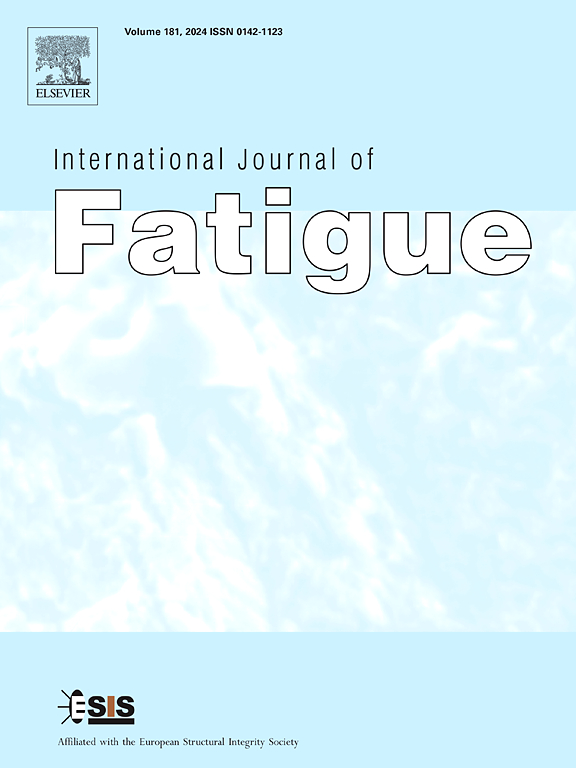MT-CrackNet:A multi-task deep learning framework for automatic in-situ fatigue micro-crack detection and quantification
IF 5.7
2区 材料科学
Q1 ENGINEERING, MECHANICAL
引用次数: 0
Abstract
Characterizing fatigue micro-cracks is crucial for understanding the mechanisms and behaviors of material damage. In-situ fatigue testing is an essential method for observing the evolution of fatigue micro-cracks; however, the process often requires significant time, making the measurement of micro-cracks a tedious task. This paper introduces a multi-task deep learning framework called MT-CrackNet, which enables automatic detection and quantification of in-situ fatigue micro-cracks. The framework is capable of recognizing or segmenting multiple tasks such as micro-cracks, text, and scales simultaneously, and its effectiveness is not limited by the magnification of in-situ images. By integrating attention mechanisms and multi-scale strategies, the model enhances its ability to handle long-range dependencies and preserve detail information, accurately identifying and measuring the length of micro-cracks. The effectiveness of the proposed MT-CrackNet is validated through three in-situ fatigue micro-crack propagation experiments.
MT-CrackNet:用于原位疲劳微裂纹自动检测和量化的多任务深度学习框架
表征疲劳微裂纹对于了解材料损伤的机理和行为至关重要。原位疲劳测试是观察疲劳微裂纹演变的重要方法,但这一过程通常需要大量时间,因此测量微裂纹是一项繁琐的任务。本文介绍了一种名为 MT-CrackNet 的多任务深度学习框架,它可以自动检测和量化原位疲劳微裂纹。该框架能够同时识别或分割微裂纹、文本和尺度等多个任务,其有效性不受原位图像放大倍数的限制。通过整合注意力机制和多尺度策略,该模型增强了处理长距离依赖关系和保留细节信息的能力,从而准确识别和测量微裂缝的长度。通过三个原位疲劳微裂纹传播实验,验证了所提出的 MT-CrackNet 的有效性。
本文章由计算机程序翻译,如有差异,请以英文原文为准。
求助全文
约1分钟内获得全文
求助全文
来源期刊

International Journal of Fatigue
工程技术-材料科学:综合
CiteScore
10.70
自引率
21.70%
发文量
619
审稿时长
58 days
期刊介绍:
Typical subjects discussed in International Journal of Fatigue address:
Novel fatigue testing and characterization methods (new kinds of fatigue tests, critical evaluation of existing methods, in situ measurement of fatigue degradation, non-contact field measurements)
Multiaxial fatigue and complex loading effects of materials and structures, exploring state-of-the-art concepts in degradation under cyclic loading
Fatigue in the very high cycle regime, including failure mode transitions from surface to subsurface, effects of surface treatment, processing, and loading conditions
Modeling (including degradation processes and related driving forces, multiscale/multi-resolution methods, computational hierarchical and concurrent methods for coupled component and material responses, novel methods for notch root analysis, fracture mechanics, damage mechanics, crack growth kinetics, life prediction and durability, and prediction of stochastic fatigue behavior reflecting microstructure and service conditions)
Models for early stages of fatigue crack formation and growth that explicitly consider microstructure and relevant materials science aspects
Understanding the influence or manufacturing and processing route on fatigue degradation, and embedding this understanding in more predictive schemes for mitigation and design against fatigue
Prognosis and damage state awareness (including sensors, monitoring, methodology, interactive control, accelerated methods, data interpretation)
Applications of technologies associated with fatigue and their implications for structural integrity and reliability. This includes issues related to design, operation and maintenance, i.e., life cycle engineering
Smart materials and structures that can sense and mitigate fatigue degradation
Fatigue of devices and structures at small scales, including effects of process route and surfaces/interfaces.
 求助内容:
求助内容: 应助结果提醒方式:
应助结果提醒方式:


